Our Valencia Travel Essentials lays out the essential information you need to help planning your trip to one of the most popular destinations in Spain. No matter how frequently you travel, some questions will always need answers: What’s the weather like? How can I get from the airport to my hotel? What currency and type of plug do I need? We have all these answers plus other basic info about the best time to go, getting there, getting around, and a few useful travel tips.
It’s all compiled in this Valencia Travel Essentials. After reading this short and easy-to-read guide, you will be a little more prepared to start your trip in Valencia.
When is the best time to travel to Valencia?

- Valencia has a Subtropical Mediterranean climate with brief, mild winters and long, hot and dry summers.
- The average temperatures range from 7°C in winter to 30°C in summer.
- The rainiest months of the year are September and October, with an average of 5 rainy days.
- The best time to visit is from April to June. Temperatures are fine, you’ll avoid the crowds of July-August tourists and enjoy more affordable hotel and flight prices.
Valencia basics

- Primary languages: Spanish
- Plug types: C and F
- Electricity: 230 V
- Currency: Euro (€)
- International dialling code: +34 96
- Emergency telephone number: 112
See also
- The 10 Best Restaurants for Local Cuisine in Valencia

The 10 Best Restaurants for Local Cuisine in Valencia
Spain - 10 Best Things to Do in Valencia
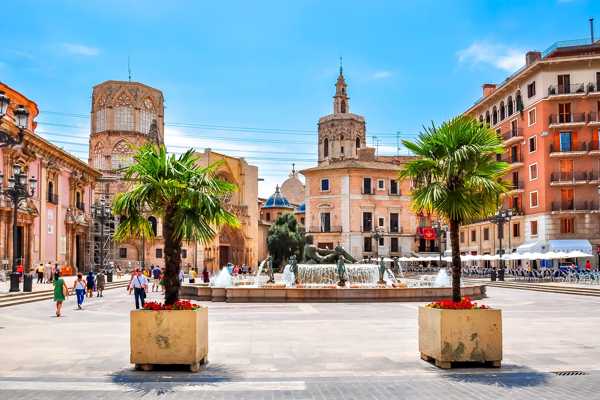
10 Best Things to Do in Valencia
Spain - 10 Family-Friendly Plans in Valencia

10 Family-Friendly Plans in Valencia
Spain
How to get to my hotel in Valencia?

Valencia Airport
Also known as Manises Airport, Valencia Airport sits 8 km east of the city centre. The airport features a single 2-storey terminal and 1 runway. You’ll find a handful of dining and shopping options throughout the terminal. There are several transfer options to reach central Valencia:
- A taxi to the city centre takes around 20 minutes. The taxi rank can be found right opposite the arrivals hall.
- The subway (Metrovalencia lines 3 and 5) takes around 25 minutes. The station is on the ground floor of the terminal, in the regional flights section.
- Bus #150 takes around 30 minutes The bus stop is outside the arrivals area.
- Car rental agencies, including Avis, Sixt and Hertz, can be found on the ground floor of the terminal.
Valencia Estació del Nord Railway Station
Estació del Nord (‘North Station’ in the Valencian language) is the main train station in Valencia. It’s hosted in a stunning Valencian Art Nouveau building just south of the Old Town. Estació del Nord is connected by standard trains to Madrid, Barcelona and other provincial towns. Here, you’ll find metro and bus lines as well as taxis to get to your hotel.
Valencia Joaquin Sorolla Train Station
Valencia Joaquin Sorolla Train Station is connected to Madrid, Barcelona and Alicante by AVE (Alta Velocidad Española – Spanish High Speed) trains only. It sits 800 metres south of Estació del Nord Station. Here, metro and bus lines, as well as taxis and car rental agencies, are available for you to get to your hotel.
photo by Flo Weiss (CC BY-SA 4.0) modified
How to get around Valencia?
Travel tips

The most pleasant way to explore Valencia city centre – the Old Town – is on foot. You’ll find many landmarks and attractions such as the cathedral, the Central Market and Plaza de la Reina within a 1-km circle around the city centre. You can even walk to major attractions such as the City of Art and Sciences and the Oceanogràfic (Oceanarium), which lie 2 km southeast of the Old Town.
For longer journeys, Valencia public transport services are as efficient as they’re affordable. They include bus, metro and tram networks.
- The metro features 4 zones. Tickets are priced depending on the number of zones you go through during a single ride.
- T1/T2/T3 tickets offer unlimited travel on all public transport in Zone A for 1, 2 or 3 days.
- Tickets can be purchased on the bus, in metro and tram stations, and at tobacco shops and newsstands.
- You can also opt for a 24-, 48- or 72-hour Valencia Tourist Card. It offers unlimited use of public transport and free or discounted entrance to museums and attractions, as well as savings in some shops and restaurants. The Valencia Tourist Card can be purchased online and in the Tourist Offices.
photo by Xiquinho Silva (CC BY 2.0) modified
Taking a taxi

- Valencia taxis are white with a yellow-and-black taxi sign on their rooftop. The sign features an illuminated green lamp which indicates that they are free. Stickers on their doors specify the company they belong to.
- Taxis can be hailed on the street.
- Taxi ranks can also be found easily all around the city.
- Rates are slightly higher at night and on weekends.
- If you do not speak Spanish, a good way to tell the taxi driver where you want to go is by showing him a piece of paper, or your smartphone, with the address of your destination written on it.
- Many taxis do not accept payment of the fare by credit card.
- Always double-check that the meter has been switched on.
- Hailo and MyTaxi apps can be used in Valencia.
Cycling with Valenbisi

- Valencia has a public bike-sharing scheme named Valenbisi. It features around 275 bike stations throughout the city.
- You can get a short-term hire card at the stations equipped with a credit card terminal.
photo by Joanbanjo (CC BY-SA 4.0) modified
What are the main annual events in Valencia?

Las Fallas de San José
- What: The most popular festival in Valencia, Las Fallas features giant wooden and papier-maché statues parading around the streets, as well as parties, concerts, celebrations of local traditions, paella competitions and massive fireworks displays.
- When: 15th-19th March
- Where: Throughout Valencia
Feria de Valencia
- What: This is a festival devoted to Valencian life and culture. Expect special concerts, plays, operas and fireworks displays. There’s also a very popular parade called the Battle of the Flowers, with floats covered in colourful flowers being pelted with even more flowers.
- When: July
- Where: Throughout Valencia
International Festival of Pyrotechnics
- What: The International Festival of Pyrotechnics celebrates the Region of Valencia Day, commemorating the arrival of King James I of Aragon in 1238. Expect spectacular shows by Europe’s most renowned firework companies.
- When: October
- Where: Banks of the Turia River
photo by Rafa Esteve (CC BY-SA 4.0) modified
This article includes opinions of the Go Guides editorial team. Hotels.com compensates authors for their writings appearing on this site; such compensation may include travel and other costs.
Start planning your trip
Where to stay in Valencia
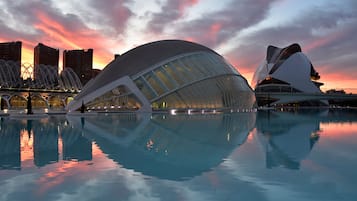
Hotel Turia Valencia

Only YOU Hotel Valencia

Hotel Primus Valencia
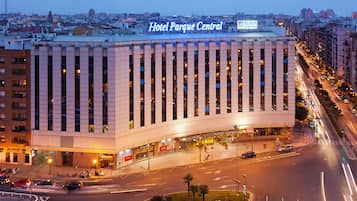
Senator Parque Central
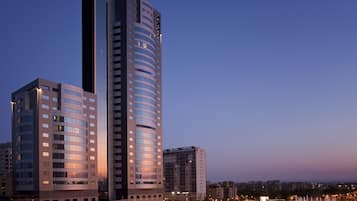
Melia Valencia
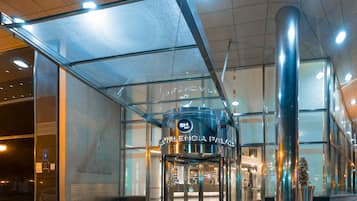
SH Valencia Palace Hotel

Hotel Las Arenas Balneario Resort
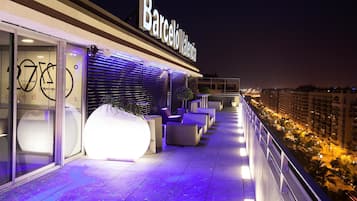
Barcelo Valencia Hotel
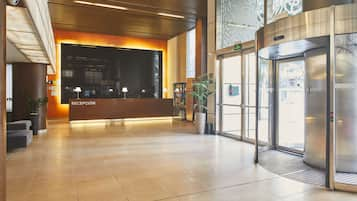
Hotel Silken Puerta de Valencia

Mythic Valencia Hotel
Related stories
- The 10 Best Restaurants for Local Cuisine in Valencia

The 10 Best Restaurants for Local Cuisine in Valencia
Spain - 10 Best Things to Do in Valencia

10 Best Things to Do in Valencia
Spain - 10 Family-Friendly Plans in Valencia

10 Family-Friendly Plans in Valencia
Spain - 10 Free Things to Do in Valencia

10 Free Things to Do in Valencia
Spain - 10 Great Restaurants in Valencia
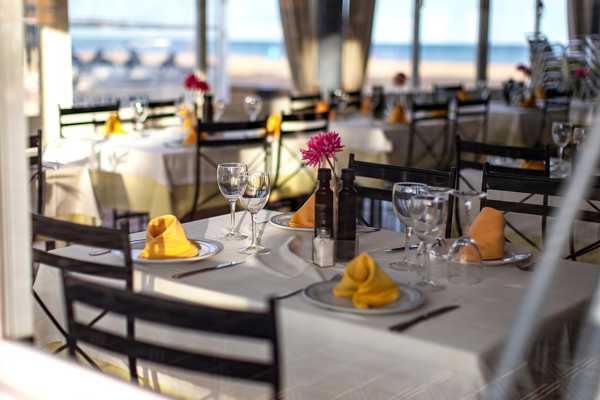
10 Great Restaurants in Valencia
Spain - 10 Best Things to Do After Dinner in Valencia
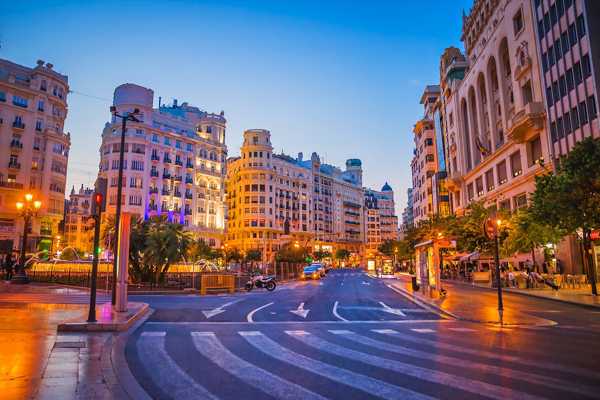
10 Best Things to Do After Dinner in Valencia
Spain - 8 Best Things to Do in Valencia in Spring
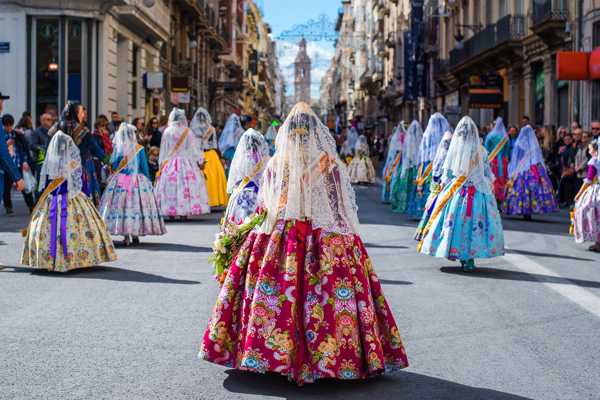
8 Best Things to Do in Valencia in Spring
Spain - 9 Best Things to Do for Couples in Valencia

9 Best Things to Do for Couples in Valencia
Spain
